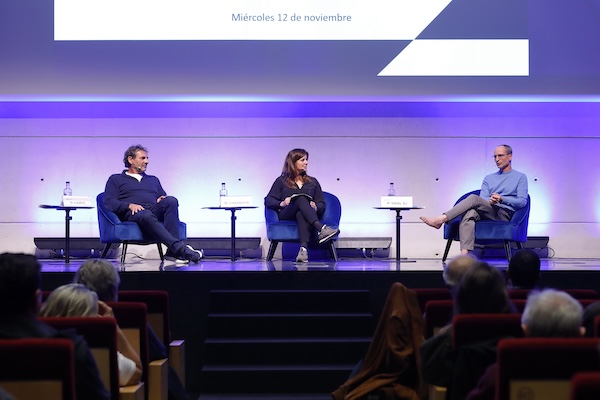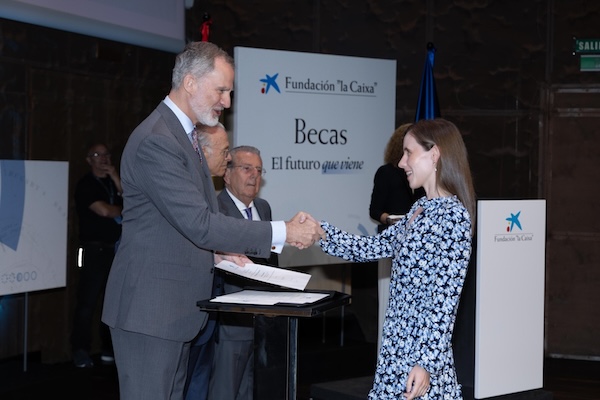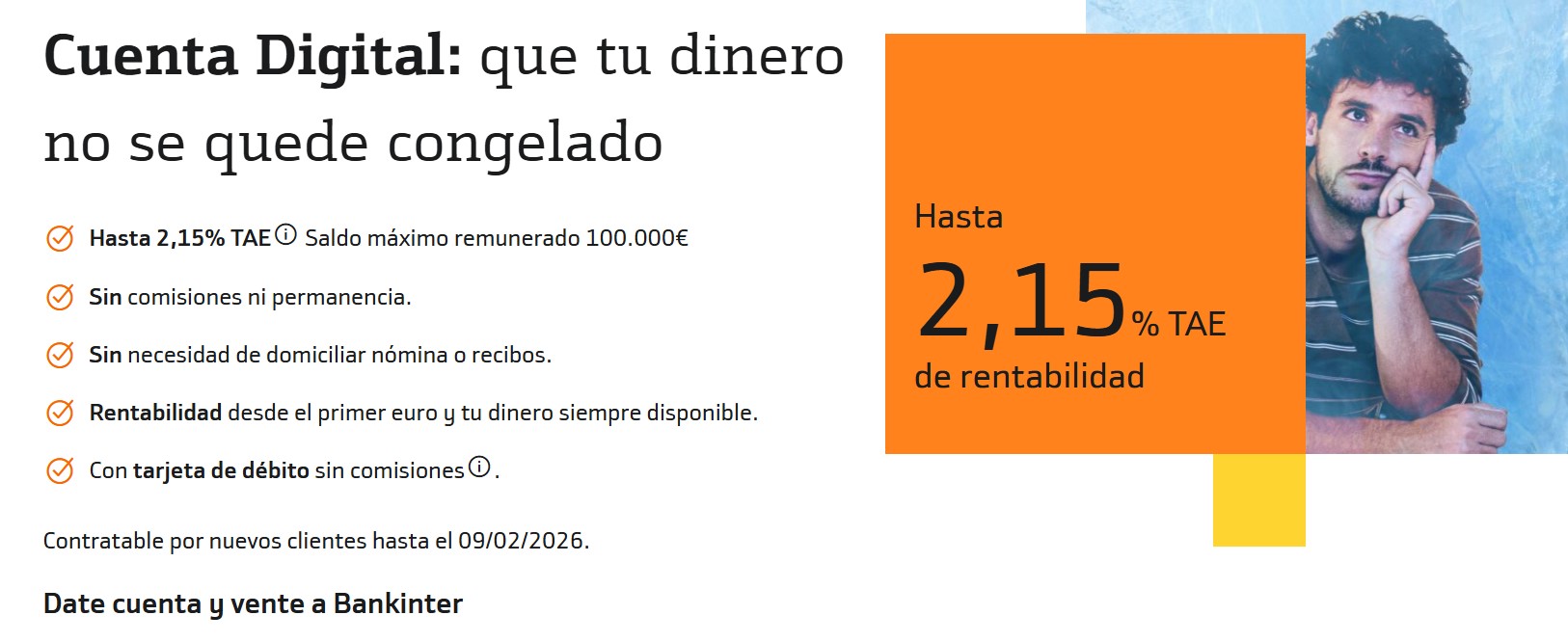The jury of the Princess of Asturias Award honored the organization Mary’s Meals for its dedication to one of the most pressing problems in the world today: child hunger
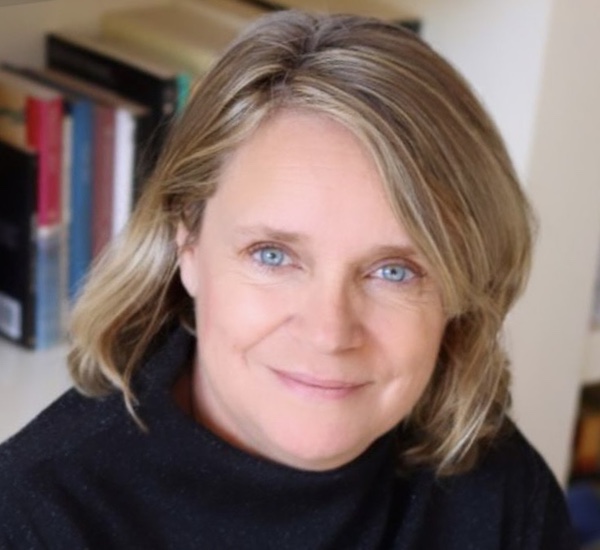
-The jury of the Princess of Asturias Award for Concord honored the British NGO Mary’s Meals last June. On the day it was announced, the organization’s efforts in one of the most pressing problems in the world today, child hunger, was highlighted, as was its imaginative solution. What is Mary’s Meals and what is your proposition?
Mary’s Meals is an NGO founded in a small town in the United Kingdom which sprang from a vision that on a planet where we have achieved such abundance, all children should receive at least one nutritious plate of food per day, and that those who have the most of what they need should share it with those that are lacking the most basic things.
The context where the organization was forged was the war in the former Yugoslavia in the mid-1990’s, when the founder and his family devoted themselves to transporting food, clothing, and medicine donated by their neighbors in Dalmally, in the Argyll region of Scotland, in their family van from there to Bosnia-Herzegovina, where there was an extraordinarily dire humanitarian crisis. This experience with scarcity led to the founding of Mary’s Meals, an NGO that used these lessons to begin to operate in other countries where similar situations were also occurring, especially with school-aged children. And I say school-aged children because that is important. One cornerstone of our NGO’s operations is that children access this food at school, which forces them to enter into formal schooling, with the consequent personal development and training this entails. Finally, I would highlight the use not only of educational but also family networks, given that the children’s families are the ones who make the meals every day, usually their mothers as a group. We also try to use suppliers from each country, wherever possible.
And a small organization in terms of number of employees has accomplished all this. Along with the inestimable work of the thousands of volunteers all over the world, they have managed to feed 2,429,182 school-aged children in ten African, six Asian, and two American countries every day.
-What does it mean for your organization to have received the Princess of Asturias Award for Concord?
Just like any other organization, Mary’s Meals is actually a particular system of relations encompassed within a much larger and more complex system: the society to which it belongs. An award like the Princess of Asturias boosts our social prominence because it both increases awareness of our existence and recognizes the satisfactory work in our mission. In a society where we have the drive to put an end to the need that many children in other countries experience—and I would venture to say that this drive is not very high on Maslow’s pyramid—that recognition is critical in the eyes of many donors and sponsors to trust us to do this work.
In the case of the organization in Spain, which began almost ten years ago and was given a complete overhaul five years ago, it makes us particularly proud, and even perhaps a bit bewildered. Keep in mind that even though the international part of the organization was large five years ago, in Spain we were tiny, just a few people around the chair of the foundation, Elisalex Löwenstein, and the executive director, Marta Manen Orbaneja. We were all volunteers holding ad-hoc meetings in a motley assortment of venues, although we did, of course, have lots to do and an enthusiasm that was—and still is—contagious.
-What are your day-to-day responsibilities at Mary’s Meals?
I am in charge of the communication that you might see if you go to our website, for example. But when we talk about such a small organization like ours in Spain, the boundaries are actually quite fluid. We began very small, constantly improvising. Now I would say we have a matrix model. But I like the metaphor of an athletic team: even though we know each person’s position, we freely move around within a field that we are familiar with, with overall coordination above us. We do operate with a great deal of internal complexity, which makes us effective and gives us awareness of being a group and satisfaction with achievements that is difficult to replicate.
Regarding our external communication, it has a important public relations angle—and this is why there is the ambassadors program at the central level. The goal is first to raise awareness of the problem of hunger in the mid-twenty-first century, and then to try to get as many people as possible involved through a solution and an organization that work. And we hope to do this with a message that focuses on respect for the dignity of all people and on hope, trusting the innate empathy that all human beings feel for one another.
Plus, internal communication is particularly important in an organization like ours because we rely so heavily on volunteers. So, it focuses on motivation and the feeling of belonging within a project that is ambitious and unique.
"We do operate with a great deal of internal complexity, which makes us effective and gives us awareness of being a group and satisfaction with achievements that is difficult to replicate"
-How did you become part of the Mary’s Meals team in Spain, and what does it mean for you to be part of this project?
Well, when the Spanish team was reassembled around five years ago, I joined it. There were very few of us back then. I had been impressed with the project, which I had found out about through a book by the founder, Magnus McFarlane-Barrow. I felt that child hunger and the corresponding suffering of their families were unbearable. And I was impressed to find out that a small amount of money (€22 today) can feed a child throughout an entire school year. Knowing this, putting an end to child hunger doesn’t seem so impossible, does it?
Being part of a project like this brings constant satisfaction. Because we are extremely ambitious, it is growing and being nurtured as more people join it and bigger goals are being met. I’ve never been part of a revolutionary social movement, but I imagine that the feelings may be similar, or at least I’m told they are.
-How do you think that the knowledge and values inculcated at ESADE have influenced your career at Mary’s Meals?
When I joined the EMBA in 2019, I was unaware of just how much it was going to impact me. The academic knowledge has clearly been useful, because it can be applied to any organization. But during those years I also learned how to analyze an organization’s issues in a concrete way with a methodology that depends on its field, and within the dynamic of a group of people from different cultures. It was transformative, despite the fact that we were the COVID graduating class.
Esade is a leading business school in Europe, but my perception is that it is also an ambitious school. It aspires to train managers who transform society for the better, so it’s a natural setting for ambitious people. This isn’t true everywhere. Practically speaking, it impacted my quest for excellence in all fields, including the third sector, with the invaluable work that the Institute for Social Innovation does for those of us who work in this sector.
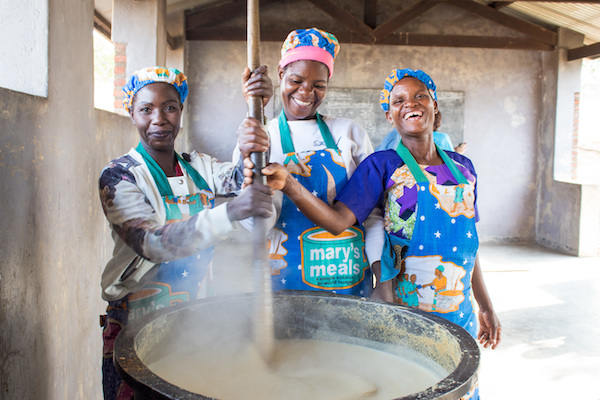
-Esade Alumni advocates sustainable business progress and creating a positive social impact. What are the challenges to raising awareness of the need to create initiatives like Mary's Meals?
We happen to live in exciting times. With the capacity for global communication and technology … never in history has a human being or a small group of us been able to make such a large social impact if we set out to. In just a few years, we are able to put an end to scourges that were considered immutable when I was born. It just takes ambition, good ideas, and setting up effective organizations, because the social drive to eliminate each of these scourges is there, and it is a powerful force that only aspires to be articulated and channeled with intelligence and energy. Human beings’ ability to progress morally as technology advances is impressive. At least that’s how I see it.
-Following the example of Mary’s Meals, how do you think companies can contribute to creating a fairer world?
That’s an ambitious question, so all I can do is give my opinion, because even though I earned the EMBA, I’m not an economist! I believe that a great many companies have an active social behavior which we can see in many areas, such as employment and its capacity for integration, along with social initiatives and others. But generally speaking, I think that national and supranational regulators could adjust the orientation of the private sector in a way that it could work even more towards the common good and social justice by establishing fiscal and social measures and benefits. But this may just be the typical thinking of my generation, especially for people with law degrees, like myself.



